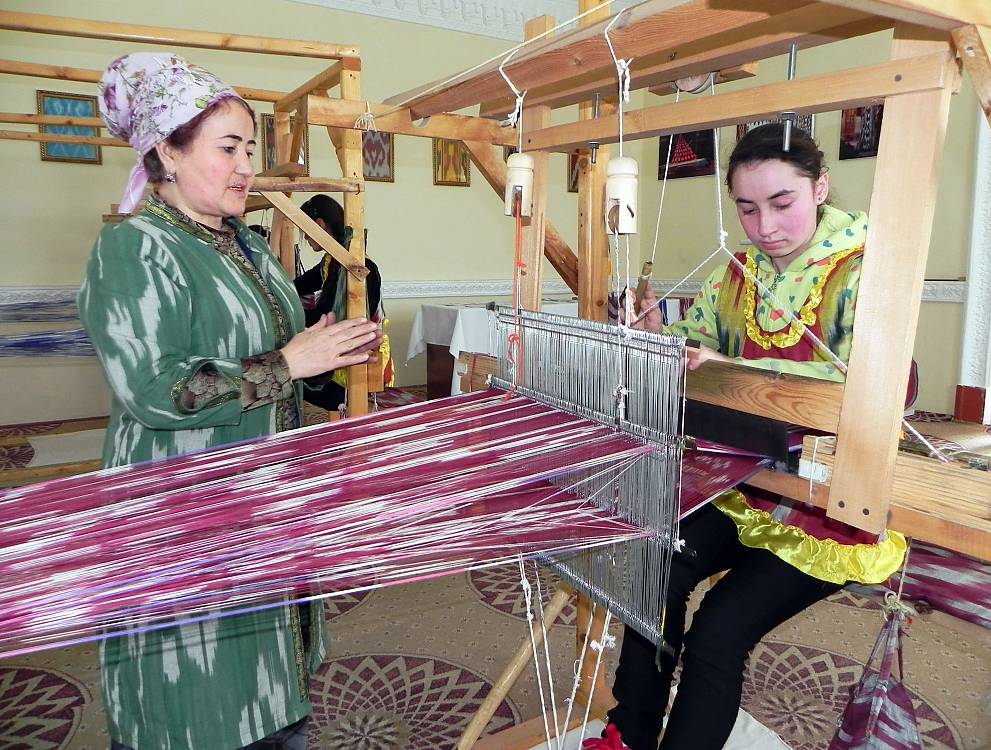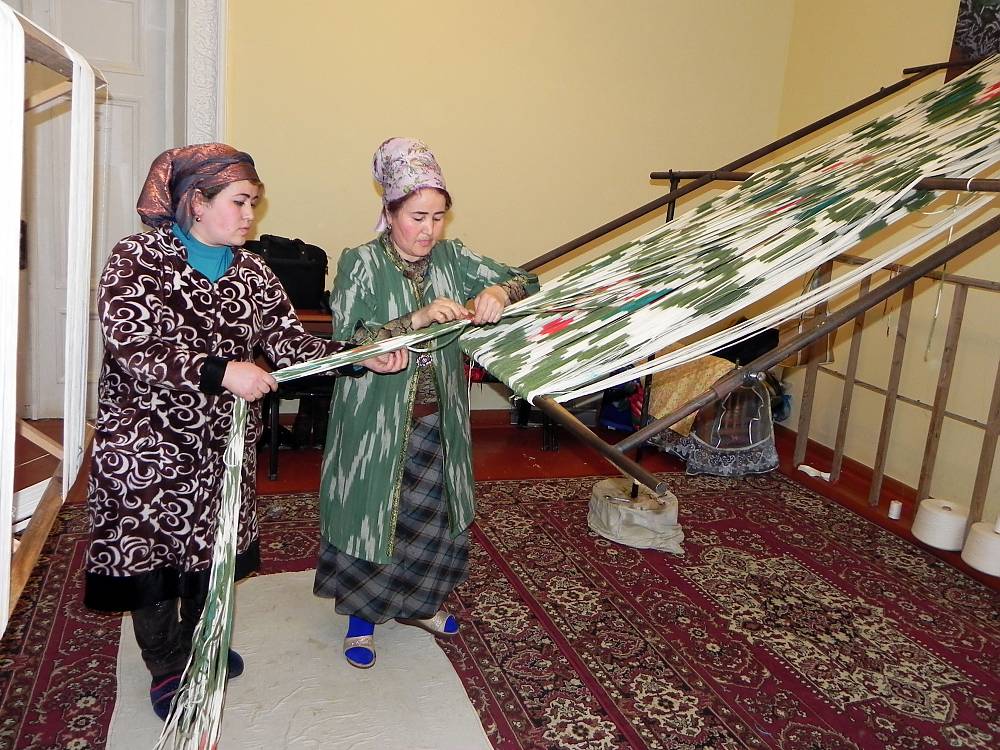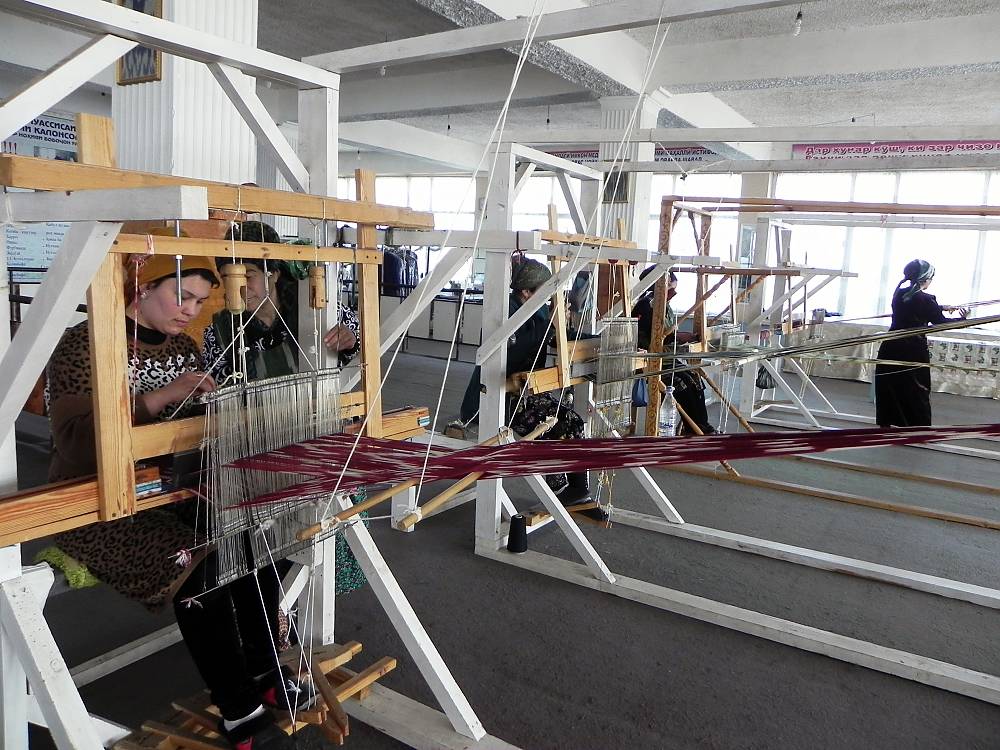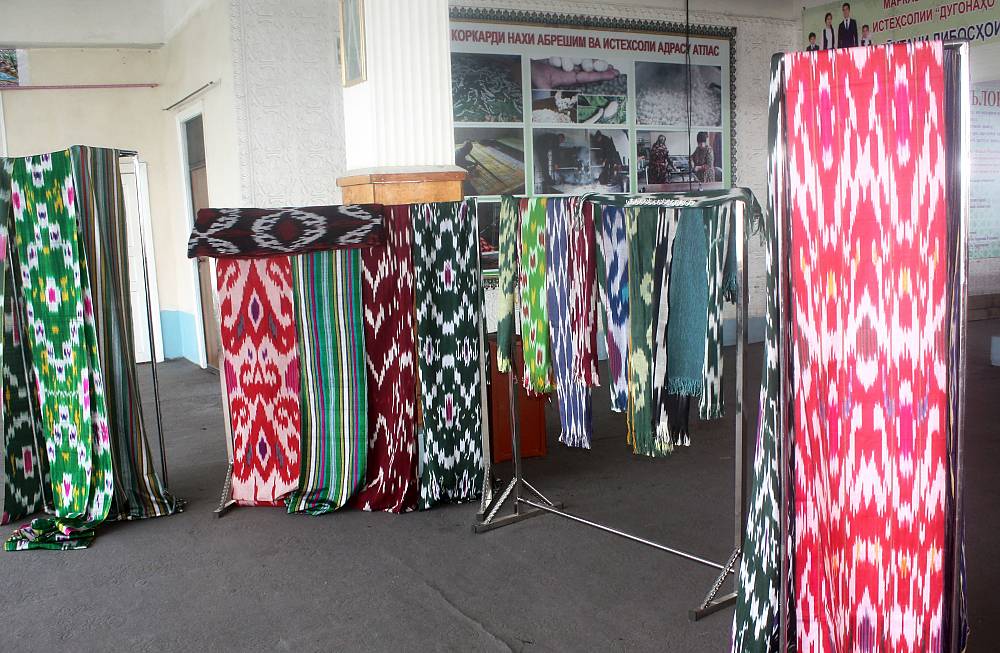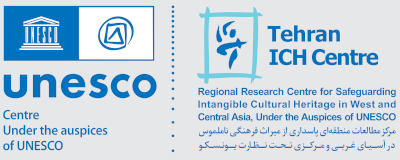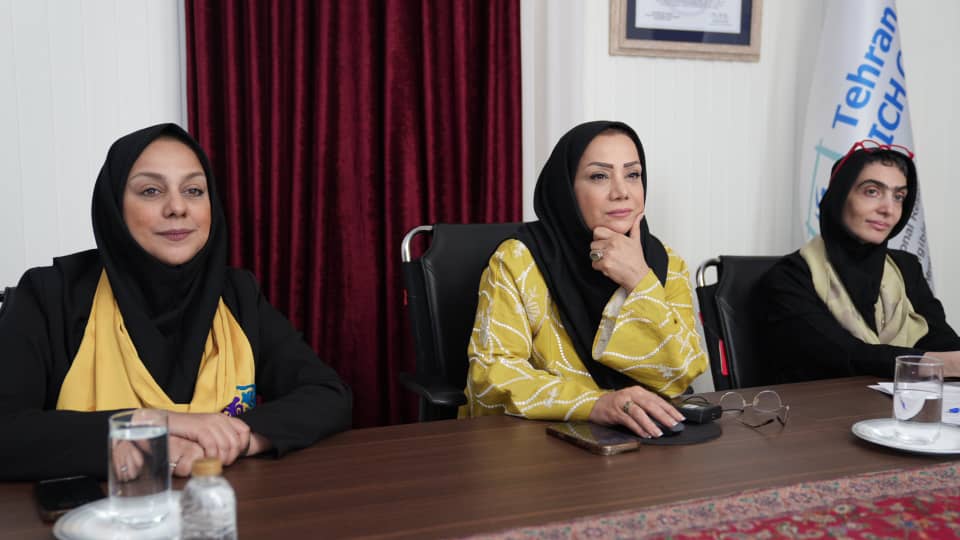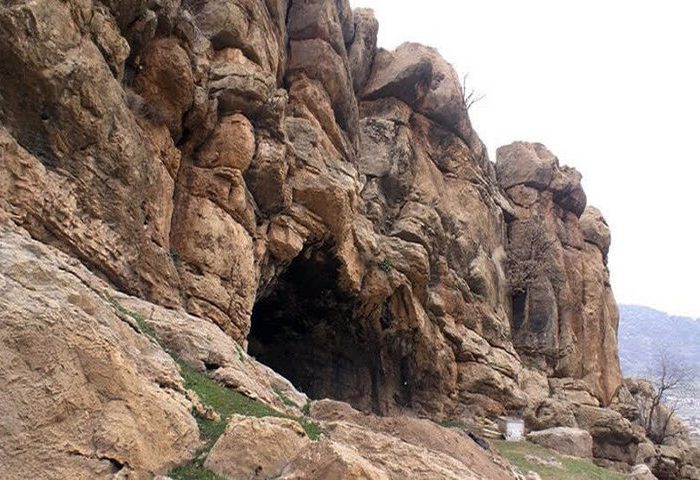Atlas and adras are two kinds of traditional woven fabrics produced in Tajikistan. Atlas is made from silk threads, and adras is woven with silk and cotton threads, but the technique of creating both cloths is similar. There are many steps in the process, from gathering cocoons and collecting cotton, to spinning, wrapping, dyeing and weaving the threads by hand. Dresses prepared from atlas and adras cloths are widely used by women and girls during celebrations, in the workplace, in schools and at home. Traditionally, the knowledge and skills related to the production of the atlas and adras are transmitted within families or in production centres. It takes three to five months to acquire the weaving skills. During this period, students practise the weaving of simple fabrics with elementary ornaments. The practice can also be transmitted formally in schools and colleges, and through participation in atlas and adras festivals. The fabrics are popular cloths among Tajik women, who consider them as part of their cultural identity. Women usually wear clothes made from atlas and adras in official ceremonies, festivals, traditional holidays, social gatherings and events. The transmission of the element to younger generations promotes unity and collaboration among people from different regions.
